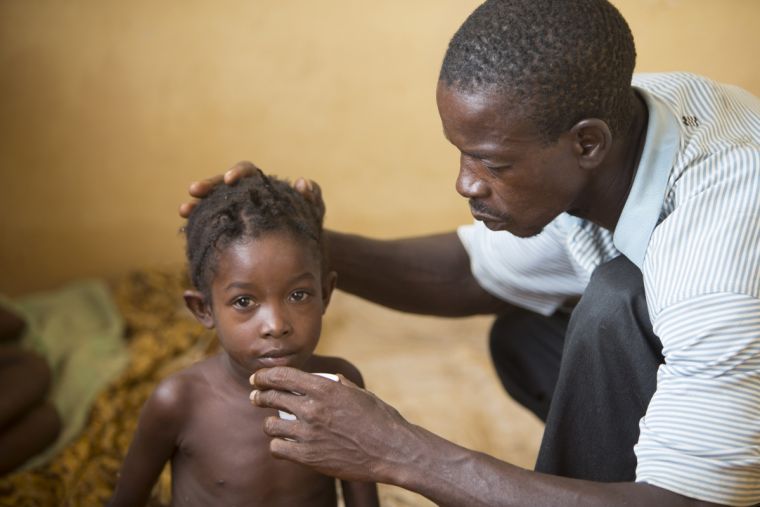Faith leaders at the forefront of driving back Ebola in West Africa

While most public gatherings have been suspended across West Africa, many churches remain open and are playing a crucial role in turning around the Ebola crisis.
World Vision said churches are one of the few places where people can receive vital information about the Ebola outbreak.
While schools and social clubs remain closed across Guinea, Liberia and Sierra Leone, churches are working to educate communities about the symptoms of Ebola and the reintegration of survivors to avoid unnecessary stigmatisation.
David Thomson, Director of Policy and Programming for World Vision UK, said: "We have strong ties to faith communities, having worked with both Christian and Muslim leaders to support our development work in the past.
"This allows us to disseminate health promotion messages through faith communities more rapidly and more effectively, drawing on the additional influence and trust they have amongst local populations."
With unsafe funeral practices among the factors in the Ebola outbreak, World Vision is working with Christian and Muslim communities to ensure safe and dignified burials.
Part of this effort has included providing trained burial teams to support religious leaders in laying victims to rest.
Churches are also distributing food and hygiene items to families at risk of infection.
"The authority of faith leaders allows them to play a vital role in challenging the myths and misinformation surrounding the virus and offer life-saving advice to their church or mosque congregations on Ebola protection and prevention methods," said World Vision.
With schools closed across West Africa, World Vision has been maintaining the education of children through TV and radio classes.
The latest outbreak of Ebola is the worst since the disease was identified in 1976 and has so far killed close to 5,000 people, according to the World Health Organisation.











